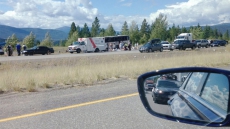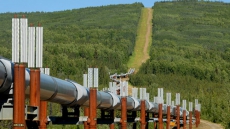A meeting of NATO leaders convened in Britain today facing no shortage of crises and a challenge from two of its dominant partners to confront a virulent new form of Islamic extremism in the Middle East.
Both U.S. President Barack Obama and British Prime Minister David Cameron called on the 28-member military alliance to deal with the emerging threat posed by the Islamic State in Iraq and the Levant, an al-Qaida splinter group.
"We meet here at a solemn moment for our alliance and the security of our nations," Cameron said at the opening of the summit, being held on a rolling golf resort in this sea-side Welsh community.
"We meet at a crucial time in the history of our alliance. The world faces many dangerous and evolving threats and it is absolutely clear that NATO is as vital to our future as it has been in our past."
Even the brush fire war in eastern Ukraine and a resurgent Russia seemed to be eclipsed by the growing concern over ISIL, whose ranks of hardened fighters have been bolstered by hundreds of westerners from Britain, Canada and the United States.
The urgency is propelled by horrific Internet images of beheaded journalists and reports of atrocities in Syria and northern Iraq, as well as the fear that foreign fighters could return home to continue their war in the West.
U.S. Secretary of State John Kerry convened a meeting of possible coalition partners, who could participate in an expanded bombing campaign and humanitarian relief operation.
Notably absent from the meeting was Canada's foreign affairs minister, John Baird, who was in Iraq meeting members of the new government and Kurdish leaders who've shouldered the bulk of the ground fighting along with elements of the Iraqi Army.
Cameron left little doubt that Britain and the U.S. are counting on NATO to step up.
"NATO is the anchor of our security and over the next two days, we must reinvigorate and refocus this alliance to tackle new threats and to ensure it continues to foster stability around the world," he said.
Prime Minister Stephen Harper, who is also attending the summit, made it clear Wednesday, speaking to a British business audience, that Canada is prepared to do more as part of the international effort.
The Canadian air force is currently using two cargo planes to fly arms and ammunition into Iraq.





